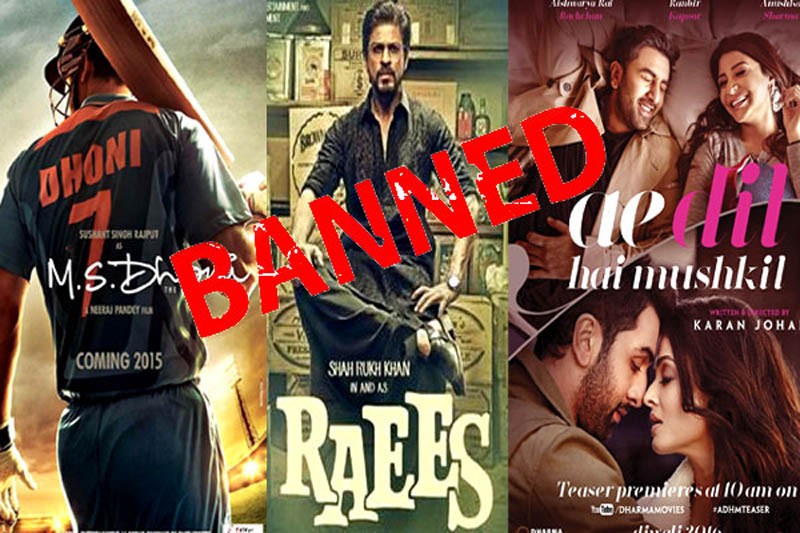
The unofficial ban has been officially lifted but a hurdle remains

It took 43 years to lift the first ban imposed by Pakistan on Indian films was in 2008. After the decision, Pakistanis thronged to the cinemas to watch films from across the border on the big screen -- never really being able to make up for lost time.
Cinema-going became a recreational activity that wasn’t frowned upon. Our local filmmakers felt the need to pull up their socks as the pressure to compete with Indian films mounted. After a long hiatus, things were finally moving and ideas started flowing -- much was being said about ‘the revival of Pakistani cinema’.
Films like Khuda ke Liye, Namaaloom Afraad, Moor, Waar, Wrong Number, Shah, Zinda Bhaag and Jawani Phir Nahi Aani among others were earning applause by the audiences.
In spite of Pakistan and India’s turbulent relationship dynamic, ideas and art flowed freely across the border. Indian and Pakistani artistes collaborated to entertain and move audiences. But both countries share a history marked by bitterness, tragedy and mistrust; and what transpires on the political arena can hang like a thick cloud -- thwarting progress in other areas of engagement, too.
Incidents like the Uri attack, cross-border firing at the LoC and the SAARC summit cancellation fiasco all contributed to escalating tensions between India and Pakistan. A post-Modi India where hypernationalistic fervour was running high started off with a 48-hour ultimatum to Pakistani artistes working in India: Fawad Khan, Mahira Khan and Ali Zafar to leave India. Their ‘reluctance’ to condemn the Uri attack, said the rightist Maharashtra Navnirman Sena (MNS), was to blame.
The intimidation tactics did work; leading the Indian Motion Picture Producers Association decide to ban all Pakistani artistes, leaving it to the Indian government to decide when the situation with Pakistan was better. Pakistani soap operas, too, were taken off air later. Things got so sour that at one point, eminent director, Karan Johar who is known to be very candid, promised to not use any Pakistani talent in his films in the future because of the MNS’ threat to vandalise his film, the Fawad Khan-starrer, Ae Dil Hai Muskhil which was soon to be released.
In response, Pakistani cinema owners and PEMRA decided to ban Indian films and entertainment content. Now, nearly four months after the ban was imposed and the heavy losses suffered by cinema owners, there is talk of taking steps for peace and harmony by resuming the screening of Bollywood films which are crowd-pullers.
Read also: Editorial
The intention to lift the ban has been iterated but there is still a hurdle in the process -- the granting of an NOC (No Objection Certificate) which will finally allow for Bollywood films to be shown in Pakistani cinemas.
While it may be a long time before we can reach the desired enduring stability in Indo-Pak relations, cross-cultural exchange should not be held hostage to the inability to resolve political and security challenges.
We may see more of these in the future, but it is important to not close any paths to reach out and engage in a meaningful manner as creative individuals. It is only through art that we can be transported across the barbed concertina wire to find that despite the antagonism, we have a shared history and cultural ethos.